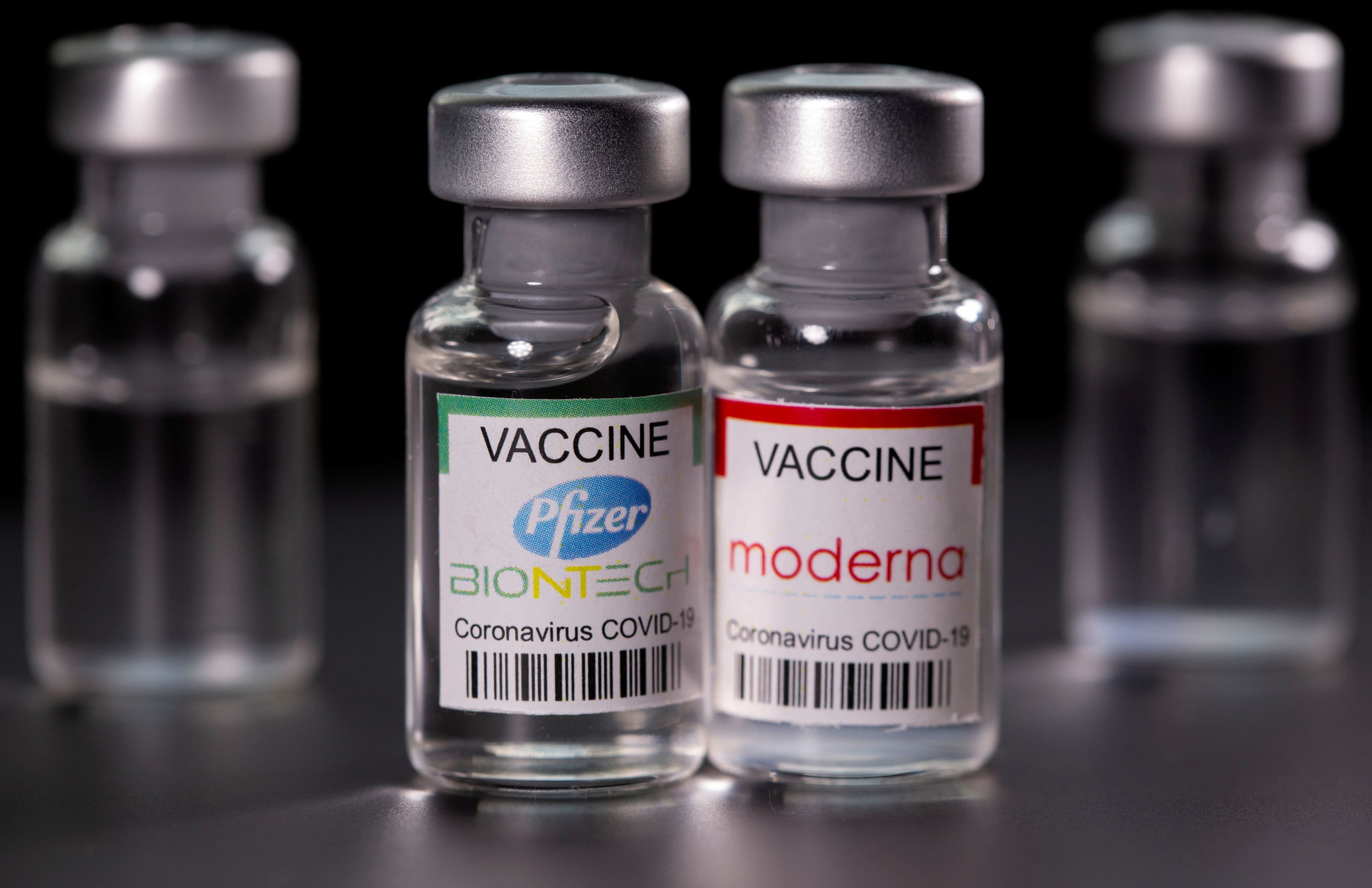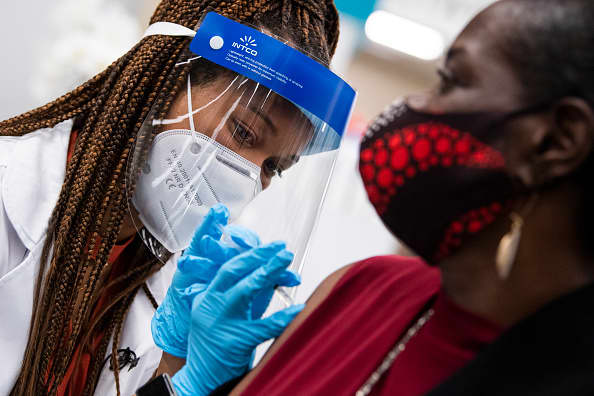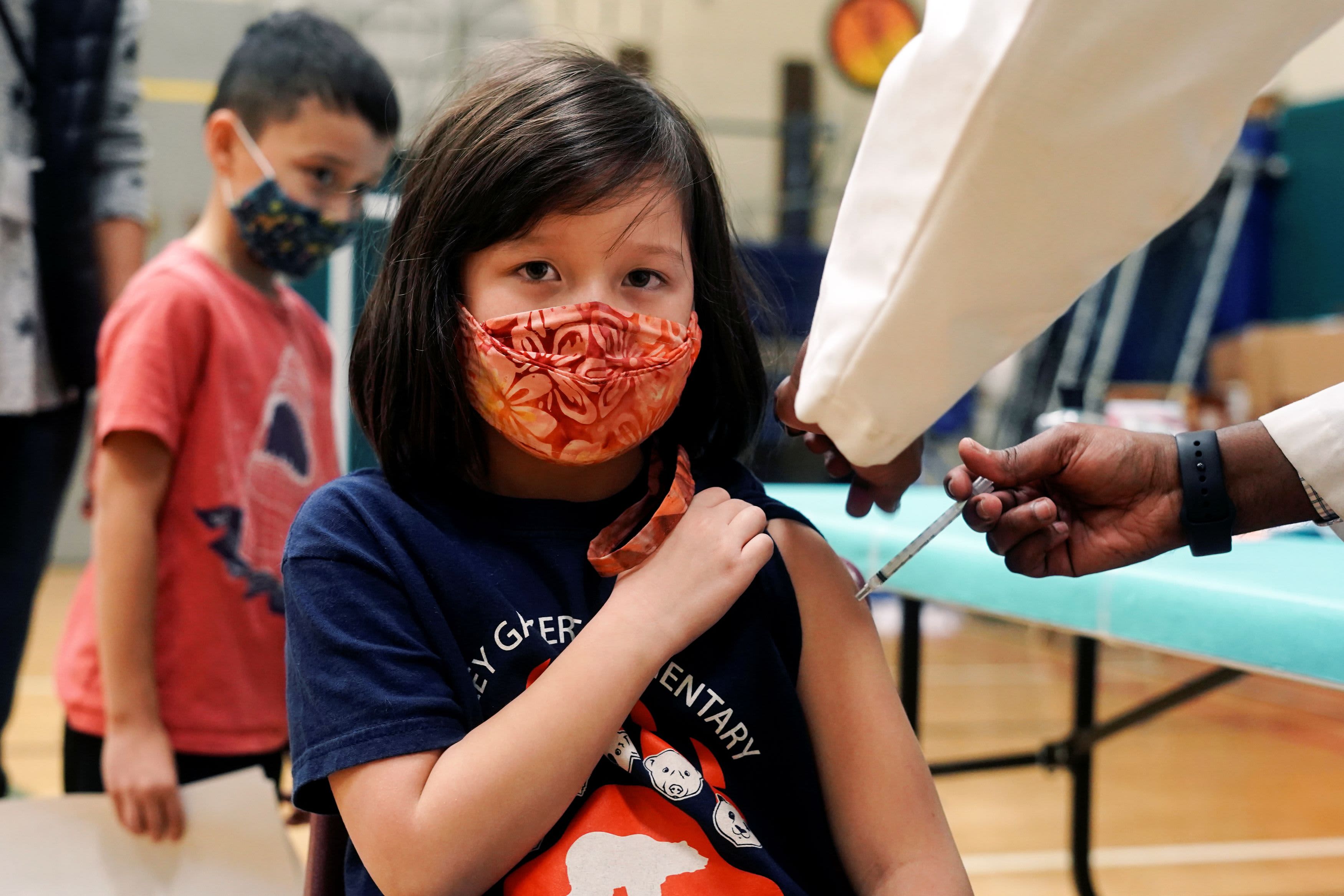As the FDA considers whether to make COVID-19 boosters available for all Americans, many are trying to decide when to get their next shot and which brand is best to get.
Dr. Kirsten Lyke led a nationwide NIH-funded vaccine study on booster doses for the University of Maryland's School of Medicine. It started in June, included 10 locations across the United States and tracked the immune response of more than 700 participants.
"You could get Moderna, Moderna and then get a Pfizer. You could get Pfizer, Pfizer and Moderna. You can mix it up; that's the beauty of this," said Lyke, whose research helped inform the Food and Drug Administration's booster decisions.
We're making it easier for you to find stories that matter with our new newsletter — The 4Front. Sign up here and get news that is important for you to your inbox.
Her study was designed to test whether it was safe and effective for people to get a different brand of booster than their original vaccine. She found it is and she says each combination is fine because they all produced enough of a boosted immune response.
"Higher doesn't mean better in terms of antibodies. There's a threshold. So, if you get over that threshold of antibody, it doesn't matter how much higher you are, you're no better protected than someone who might have a little lower antibody," said Lyke.
The FDA is already recommending that anyone who got a Johnson & Johnson shot more than two months ago go get a booster now. Lyke's research showed the Pfizer and Moderna boosters each gave a better immune response than a second Johnson & Johnson shot.
"In my opinion, it was always a two-dose vaccine; it wasn't a one-dose vaccine. The ‘one and done’ was a good niche for them, and that worked well for a lot of people," said Lyke.
Of the 700-plus people participating in her study, Lyke said there has only been one breakthrough case so far and it happened fairly close to when the person had gotten their booster, so it might not have taken full effect yet. The peak antibody level takes about two weeks to develop.
Her study is one of the few tracking breakthrough cases following booster shots, so she's watching that data point closely.
"If you do get a breakthrough, usually it's incredibly mild. In fact, you may not even be aware it may be completely asymptomatic," said Lyke.
The Centers for Disease Control and Prevention says more than 26 million Americans have already received a booster shot. With plenty of vaccine supply, the scheduling process is wide open. But Lyke cautions not to abuse it. Healthy people do not need more than one booster.
"I would encourage people not to do that because we haven't studied the safety of additional doses. And, you know, we just don't know," Lyke said.
But she believes that could be on the horizon. Her booster study will determine if another shot is needed next year, when the immune response from boosters given now begins to wane.
Her study will also add additional participants if necessary, and new types of boosters if vaccine makers develop formulations to target specific variants.
"We're doing it as there are new questions that are important for public health," she said.
Lyke said her first two doses were Pfizer and then she got a half dose of Moderna as her booster. She said she chose to mix it up because her research helped the FDA and CDC decide to approve the mixing and matching of brands.
Her study initially included only the full-dose Moderna booster, but Lyke said the half dose is now also part of her research. She said the FDA opted to approve the half dose because it gives a very good immune response, with fewer side effects.
Reported by Jodie Fleischer, produced by Katie Leslie, and shot and edited by Jeff Piper.




